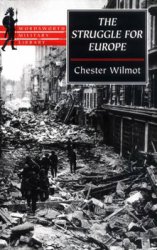For centuries, the Romans' behavior had resembled that of an old farmers' saying: “I don't want much; just the land that borders on mine.” Fearing conquest by others, they had conquered neighboring lands until they spread beyond Italy. With their two victories over carthage, their lands grew considerably, including the Spanish coastal area conquered by Scipio.
Hannibal had meanwhile formed an alliance with Philip V of Macedon, who had become understandably worried about the Roman presence in Illyria. This alliance gave the Romans an excuse to step up the ongoing conflict with Philip, which dated back to the early years of the Second Punic War.
In 197 B. C., Rome defeated Philip at Cynocephalae (Sly-no-SEF-a-lay), setting the stage for final victory over the last great power in Greece.
After Alexander the Great died, his empire had been divided into three parts: the Macedonian and Greek homeland, the Seleucid Empire of western Asia, and the lands under the control of the Ptolemies in Egypt. The rulers of each had squabbled between themselves, and thus Philip had made common cause with the Seleucid king Antiochus III (an-tee-AHK-uhs; 242-187 b. c.) against the Ptolemies. Now, with the removal of Philip from the picture, Antiochus made several important moves. First, he married his daughter to Ptolemy V of Egypt. Named Cleopatra, she was the first in a line of queens with that name, the seventh of which would play an important role in Roman history. He also joined forces with Hannibal, who had fled to Syria. Finally, he invaded Thrace, an act that the Romans correctly interpreted as part of a larger plan to gain ground in Europe.
By 190 B. C. the Romans, again under Scipio, defeated Antiochus in battle at Magnesia (mag-NEEZ-ee-uh) in Asia Minor. This victory gave the Romans a new province: the former home of the Lydians on the western third of Asia Minor. It also brought about the end of Hannibal, who committed suicide rather than be captured by the Roman armies.
Rome was not finished with Carthage, however. Even as Roman power grew, Carthage remained a rallying cry, an object of hatred to inspire all Romans. The politician Cato (KAY-toh; 234-149 b. c.), an outstanding writer and orator, called for a return to the simpler values of the early republic. In the case of Carthage, though, he demanded that Rome show no mercy. He ended every speech with the words “Carthage must be destroyed.” In 149 b. c., the year he died, the senate fulfilled his wishes by declaring war on Carthage.
The causes were trumped up, but the devastation of Carthage itself was terrifyingly real. After a prolonged siege, the Romans burned the city in 146 b. c., reducing it to a heap of rubble and ashes. These they plowed into the ground, along with salt to ensure that nothing would grow there. A century later, Julius Caesar would establish a new colony on the site of the old city, but the Carthaginians themselves were gone: the Romans had sold them into slavery. To this day, the expression
The catapult (an invention of Archimedes), gave the Roman army the advantage over enemies. The Granger Collection, New York. Reproduced by permission.
“a Carthaginian peace” refers to a cruel or unfair treaty imposed on a conquered people.




 World History
World History









